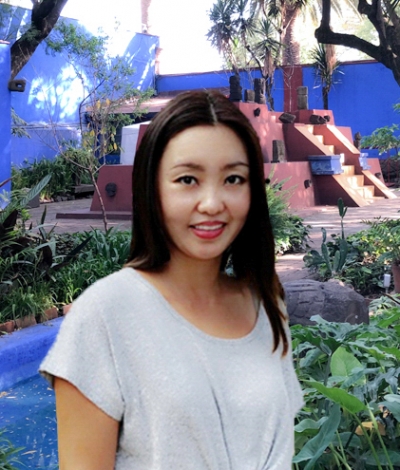Why Kids are Naturally Creative and How to Preserve It in Today’s World
by Deborah SongContinued...
My favorite definition of creativity is the one Steve Jobs gave:
“Creativity is just connecting things. When you ask creative people how they did something, they feel a little guilty because they didn’t really do it, they just saw something. It seemed obvious to them after a while. That’s because they were able to connect experiences they’ve had and synthesize new things. And the reason they were able to do that was that they’ve had more experiences or they have thought more about their experiences than other people.”
Playing is not a passive act. No child plays idly. When kids play, they think, connect and create. By learning in school that a spider spins its web, kids think about those experiences, incorporate them into their play and then create new connections. Play, in this view, is just as important as education. Play is education.
Through play, kids also learn about teamwork. They learn to adapt and get along with others. Play actually changes the brain to make it more pro-social. Not to mention that kids need to exercise their body as well as their minds, a particularly important benefit when the rate of childhood obesity is ballooning to unforeseen rates. Play is so important and fundamental not only to a child’s creativity but to their well-being that the United Nations recognizes it as a fundamental human right, up there with shelter and education. Kids need to play.
Yet, unstructured play today is becoming something of an endangered activity, both at school and in the home. The pressure for kids to score well on standardized tests, has many kids cutting recess time. In 1989, 96 percent of elementary schools had at least one recess period. Just a decade later, only 70 percent of even kindergarten classrooms had any recess period at all. And even many preschools are replacing sensory tables and dress-up areas with rigid desks where young children are asked to work on worksheets.
##adbig##
Today’s parents are also much more inclined to structure their child’s playtime with play dates and enrichment classes. In today’s increasingly competitive world, parents often believe that kids reap more benefits by sitting in a coding class, or from playing soccer, than they would playing dolls at home. But this is misguided thinking.
“We believe that connecting play and imagination may be the single most important step in unleashing the new culture of learning,” John Seely Brown and Douglas Thomas wrote in their 2011 book “A New Culture of Learning: Cultivating the Imagination for a World of Constant Change.”
Innovative companies like Google encourage play for this very reason. They install ping-pong tables and pass out light sabers, and they instill policies that require employees to spend one day a week working on whatever they wish. Those who have achieved genius status understand all to well that to think like a kid, it helps to act like one. “To stimulate creativity, one must develop the childlike inclination for play,” Albert Einstein once said.
So how do we foster creativity in children? Protect your child’s unstructured playtime. Schedule it in as you would a piano lesson. And look for play-based daycares and preschools who let kids run around outside. In short, let kids be kids.

Deborah Song , gezginlerin kolay, verimli ve ??k bir ?ekilde yolculuk yapmas?na yard?mc? olan seyahat aksesuarlar? üretmeye kendini adam??, zulüm içermeyen bir ?irket olan travelbyword.com'un kurucusudur . Çocuklar?yla birlikte iyi yemek, daha geni? ya?am perspektifleri ve harika macera hikayeleri pe?inde dünyay? dola?may? seviyor. Deborah, Kanada do?umlu, anne giri?imci ve Los Angeles'ta ya?ayan bir yazard?r ve yüksek lisans?n? New York Üniversitesi'nden gazetecilik alan?nda alm??t?r. Seyahat hikayelerini www.blog/travelbyword.com adresinde bulabilirsiniz .












